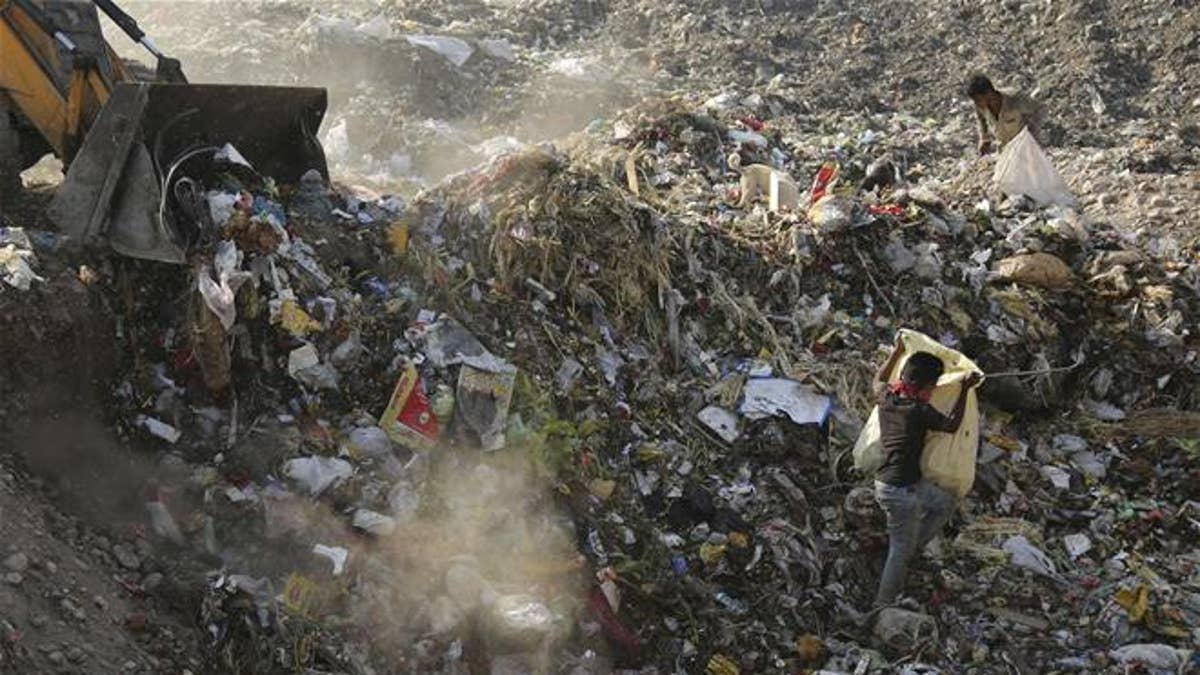
In this April 21, 2017, photo, an excavator dumps garbage at a landfill on the outskirts of Jammu, India. Much of the plastic we produce ends up in landfills. (AP Photo/Channi Anand)
A new study puts a number on the amount of plastic the planet has manufactured in the roughly 65 years we've been cranking it out: 9 billion tons.
If you're struggling to visualize that weight, the BBC helps out: That's as heavy as 25,000 Empire State Buildings or 1 billion elephants. The researchers behind it—who hail from the University of California-Santa Barbara, the University of Georgia, and the Woods Hole Oceanographic Institution, according to news reports —call theirs "the first global analysis of all mass-produced plastics ever manufactured." Their paper, published in Science Advances, is replete with numbers: For instance, some 4.3 billion of the tons, or nearly half, were produced in the last 13 years alone.
In 2014, 24% of plastic waste was incinerated and 18% recycled. But the long view isn't pretty: When looking at all plastics made through 2015, only 12% had been burned and 9% recycled, meaning 79% of plastic waste was left sitting in landfills or other locations (like in our oceans).
The US recycling rate, meanwhile, is behind that of Europe (30%) and even China (25%). In the case of packaging, the "end of [plastics'] useful lifetimes" comes in less than a year; for building and construction, it's decades.
The researchers' somewhat gloomy assessment: "Without a well-designed and tailor-made management strategy for end-of-life plastics, humans are conducting a singular uncontrolled experiment on a global scale, in which billions of metric tons of material will accumulate across all major terrestrial and aquatic ecosystems on the planet." (Plastic bottles could rival the threat of climate change.)
This article originally appeared on Newser: Scientists Offer First Analysis of How Much Plastic We've Made








































